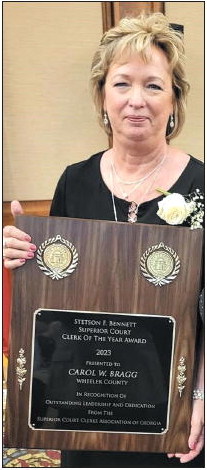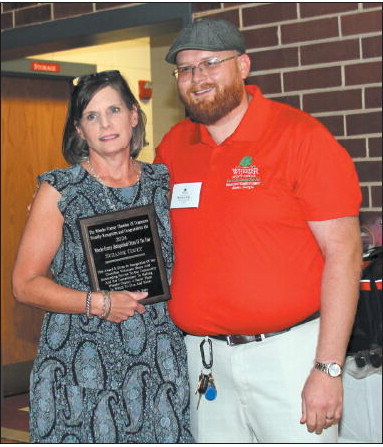Homelessness
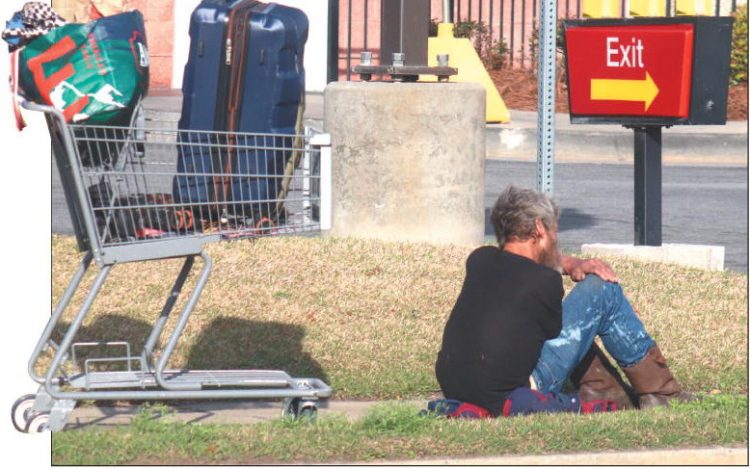

mrandolphadvance@gmail.com
Homelessness has become a growing concern in the cities of Vidalia and Lyons, more so in Vidalia. On any given day, individuals can be seen pushing shopping carts filled with their belongings along city sidewalks and roads; homeless camps have sprung up in various areas. One such encampment was located in a lot adjacent to the Boys & Girls Club in downtown Vidalia. Individuals that occupy these camps generate unsightly litter and debris and have become an unsavory nuisance.
The depravity of the homeless individuals roaming the streets has not only become an eye sore but has caused problems for businesses. Squatters found in vacant properties by private owners continued from page
and real estate agents have raised safety concerns. Local businesses at their own expense have had to clean up the litter and debris left behind by the homeless. Other businesses have suffered thefts and the loss of items such as grocery carts as the result of the homeless pilferage.
Vidalia and Lyons have taken steps to battle this issue, but will it be enough?
At the “State of the Cities” event on March 2, Vidalia Mayor Doug Roper addressed the issues of homelessness and public safety. “This one is a tough one,” he remarked. “It is difficult on all of us, but it is something we have to figure out and address in the best way we possibly can.”
According to Roper, the hard part of the situation is balancing compassion with discipline. “We want to show compassion where compassion is needed, but experts will tell you, a lot of these individuals [that are homeless] struggle with mental illness and drug addiction. Some of these folks want to get out of the lifestyle, some of them don’t want to get out of the lifestyle. We do not have the resources like a major metropolitan community to address the total need of that person, so how do we partner with local agencies to provide for those who want help? How do we get those out of our community who do not want help?” he shared.
He said that the cities of Vidalia and Lyons were working, with another unnamed organization that creates a database on the homeless population, to create an inventory of the homeless individuals in the area. “We have to know and identify who these people are to point them in the right direction and get them the help they need,” Roper explained.
At that time, Roper said that the City of Vidalia administration was traveling to the locations of the known homeless camps and speaking with the property owners in an effort to get written permission from the property owners to police the property. Once obtaining this written permission, the Vidalia Police Department could give the occupants a warning that they must leave. If the occupants fail to leave, they may then be removed and arrested for trespassing if they continue to reside on the property.
During the “State of the Cities” event, the City of Lyons administration shared that the City had added several new patrol cars to the Lyons Police Department’s fleet, ensuring that all patrol officers were able to do their jobs more effectively. Lyons Police Chief Wesley Walker said this upgrade is vital to the provision of public safety services throughout the community.
Walker also discussed the number of mental health cases with which the Department deals, especially concerning the homeless population. “One of the big issues nowadays that law enforcement is faced with is dealing with the mentally ill,” Walker said. “Especially in rural south Georgia, we do not have a lot of resources to deal with the mentally ill, and when these people are out in our community and make disturbances at your business, what do you do? You pick up the phone and call 911.”
Walker explained that from that 911 call, law enforcement officers are challenged to deal with that individual because of the limited resources they have for handling cases of mental illness. Yet, last year, while at a training in Athens, Walker learned about the police behavioral health specialist from the Gainesville Police Department.
“They had hired a lady who had a Master’s degree in Psychology and a lot of experience in dealing with the mentally ill to basically assist police officers when they had a call involving someone with mental illness. She was able to assess the scene and determine the best course of action to handle that person, whereas before, our only option was to hold them at the emergency room, have a doctor see them and determine if a 10-13, or mental order pickup, needed to be signed, and transport them to some facility somewhere else, where they may have stayed two days, or even sometimes beat us back to town,” he commented.
After learning of this program, Walker pitched the idea to Lyons Mayor Willis NeSmith and Lyons City Manager Jason Hall, and the group approached Leeann White & Company, because they had heard that the business recently received a grant for treatment and recovery for addiction. According to Walker, part of that grant provided the means to hire two behavioral health specialists to assist law enforcement in Toombs County.
“That grant pays their salaries for the next four years, so that program is in place at no cost to the taxpayers right now,” he added. “I hope in four years, we can show you how successful that program is going to be. I can already see benefits and success stories and the program has only been running for three months now.”
Hall also commented on the Lyons Police Department. “They do a wonderful job of community policing. They are as concerned about protecting businesses and property as they are concerned about helping the people in the community,” he remarked. “We are struggling; no one wants to be a police officer anymore. It has gone by the wayside. We always wanted to be police officers growing up, but that is not happening anymore.” He continued, “We strive to bring in quality, talented, skilled police officers to our force, and adding these extra things, such as the mental health responder and getting equipment that is safe and reliable, is not by chance, but is planned out in 5- and 10-year plans. The wheels of government sometimes move slow, but are moving nevertheless.”
Both Vidalia and Lyons are being more proactive to address the issue of homelessness. New city ordinances will give police officers a basis for the removal of individuals who are setting up camps or loitering.
One attempt by the Vidalia City Council to address the homeless issue was to propose an ordinance that penalized businesses for allowing their property to be removed. Businesses whose shopping carts were stolen and found in the city would be fined $250 per shopping cart.
After outcry from citizens and local business owners claiming the proposed ordinance did little to stifle the homeless issue and did nothing but unfairly punish local businesses the proposed ordinance was tabled.
The Lyons City Council adopted an ordinance prohibiting “Urban Camping.” The Council completed the first reading of that ordinance last month before final approval came at its June meeting. On Monday, June 12, the Vidalia City Council completed the first reading of a similar ordinance in the process to get it approved.
The Vidalia City Council will have a second reading of the new “Urban Camping” ordinance and consider its adoption at its next regularly scheduled meeting on July 10.
Currently, there are no plans for the creation of a homeless shelter in either city.
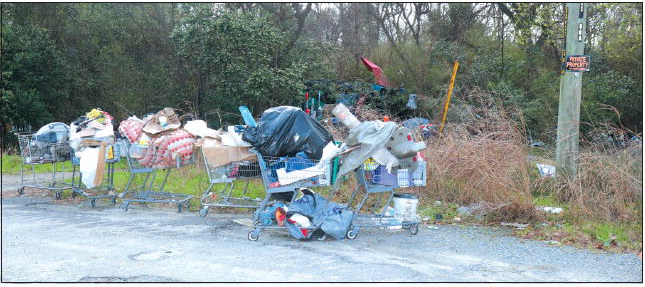
SHOPPING CARTS – Vidalia proposed an ordinance to punish businesses for individuals removing their shopping carts from the property, but the ordinance was tabled and never made it to the second reading.
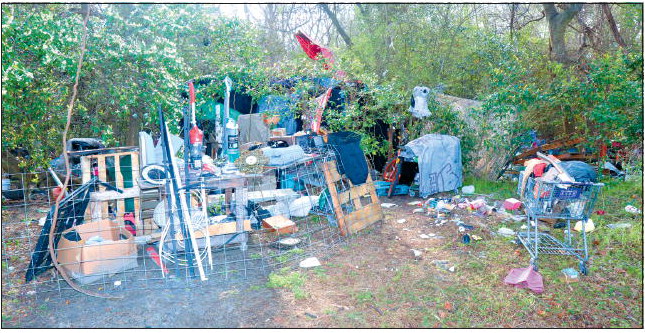
URBAN CAMPING – Both cities have worked towards the creation of ordinances prohibiting urban camping, as the homeless have been creating various camps throughout the area.





